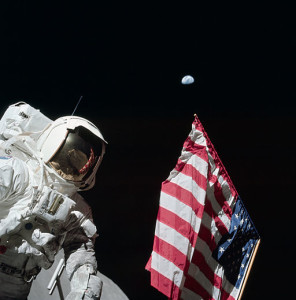
Last year, the novelist Tess Gerritsen sued Warner Bros. for breach of contract for making the film Gravity, based on her novel. Gerritsen did not sue for copyright infringement, because she sold the film rights to her book to a New Line Cinema subsidiary called KATJA. New Line was purchased by Warner Bros., who later made the film Gravity. Gerritsen wants the percentage of the film’s proceeds she was promised in her contract with New Line. Warner Bros. said Gerritsen can’t sue them because she had no contract with the Warner Bros. A judge has, in principal, agreed, dismissing the suit, but giving Gerritsen’s team 20 days to amend their complaint so that it might make a stronger link connecting New Line to Warner Bros. Gerritsen wrote a lengthy blog post on the subject, if you want to take a quick peek and get a bit more familiar with where she is coming from.
Now that you’ve looked at Gerritsen’s blog, thanks for swinging back. The case interested me, as it did many others, because it seemed so clear that Gerritsen was getting the shaft. I mean, the idea that you could create a contract with New Line, and then because New Line was bought by Warner Bros., your contract didn’t have to be honored, seems, on its face ludicrous and unfair. This is probably why writers all over the place were up in arms. Uber agent Kristen Nelson even wrote a blog post about how troubling the judge’s decision was.
My husband, who is an attorney, kept telling me there was something more to this story, that the case simply can’t be as compelling as Gerritsen states, if the judge threw it out on summary, which is when the judge is supposed to view everything most favorable to the plaintiff (who is Gerritsen).
As I do trust my husband in matters legal, I’ve been looking around the web to see if anything new popped up that might shed some light on what was going on. And I found this really fascinating chat on John August‘s website. Now, I have never written screenplays nor followed that scene, so I wasn’t familiar with August, whose blog focuses on screenwriting. But, I must admit, I started following him on Twitter, because his blog has these really fascinating conversations. He and screenwriter Craig Mazin, discussed the Gravity case and some of the slippery slope issues that are at play in it. You can listen to the audio, or, if you’re at work or just prefer reading, view the transcript.
This discussion gives a more balanced view of the issues, and really clarifies the concept of Chain of Title, which is similar to chain of custody in criminal cases. What is imperative in getting clarity on is who owned the rights to that content and to whom were they transferred to. The obvious first chain of title was from Gerritsen to the company Katja (a subsidiary of New Line). But, what happened next?
They also had some pretty interesting things to say about the slippery slope that might occur were Gerritsen to win her entire lawsuit:
So let’s say that Ms. Gerritsen gets her way and Warner Bros is held responsible for this and now Alfonso Cuarón’s Gravity is no longer considered an original screenplay, but in fact it’s based by a novel by her, a novel that he may or may not have read, and it doesn’t matter. That’s the way it is. So, now, let’s talk about what that means for screenwriters. You go to a studio and you say I have an original idea and I’m going to sell it to you. Or, I have an original screenplay, I’m going to sell it to you. And they say, great. We love your spec script. We want to buy it. However, because of Gerritsen v. WB, we have had to run through our archives of all material that we own, including material owned by companies that purchased it before we purchased the company, and we have found seven different books that we have contractual obligations to that are similar in topic. … Basically, we have seven books that include a lot of horse movie tropes. So, your original screenplay is now actually based on seven different books. It’s a nightmare.
Now, that was a quote from Craig Mazin. Clearly, there’s a screenwriter bent to his concern, but screenwriters, just like novelists, are content creators. I think it’s interesting how both sides can claim serious concerns for content creators over the loss of the case.
Ultimately, I hope Gerritsen wins her motion to connect the New Line contract to Warner Bros., as that was really the most alarming part of the scenario. Right now the issue is very technical, and really about whether she can actually sue Warner Bros., not the merits of her case and whether the movie that was made was indeed based on her book. I don’t know enough about the merits of her claim (there are clearly some significant dissimilarities between the book and the eventual film that one wonders if they are, in fact, the same project), to say I want a specific side to win the final suit.
Anyway, if you’ve got the time and were interested in the Gravity case, check out the audio or transcript. Really fascinating chat over the major issues involved.
In the end, in cases like this, it’s usually the side with the most expensive team of lawyers that wins.
Well, I hope that’s not the case. I’d like justice for all and that kind of thing.